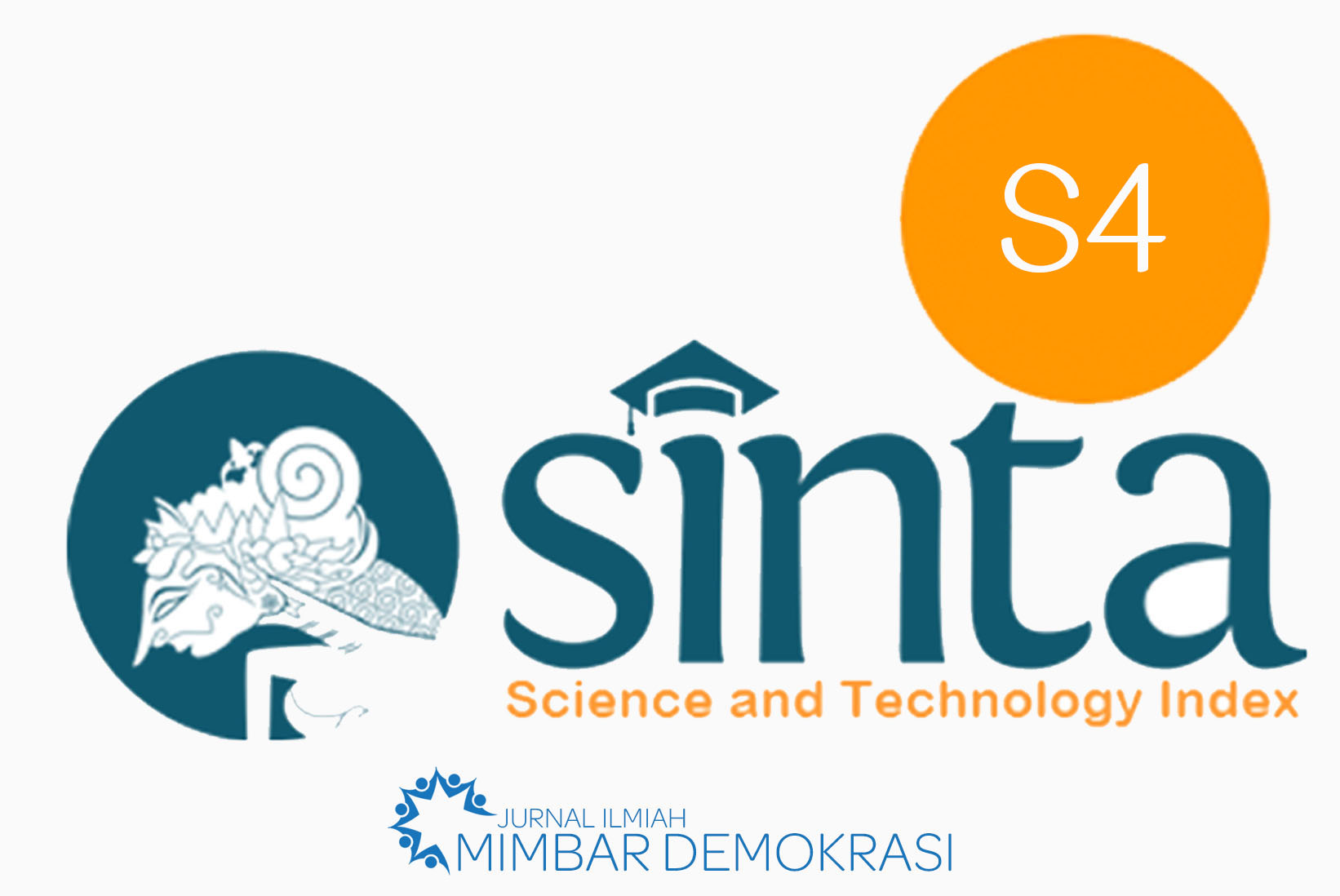Implementasi program Kampus Mengajar dalam pembentukan karakter tanggung jawab mahasiswa Fakultas Pendidikan Ilmu Pengetahuan Sosial Universitas Pendidikan Indonesia
Abstract
ABSTRAK
Saat ini masih banyak permasalahan di Indonesia yang berkaitan dengan krisis karakter seperti tingginya tingkat korupsi di Indonesia, pelanggaran hukum, krisis identitas bangsa, dan menurunnya moralitas. Hal tersebut terjadi salah satunya akibat rendahnya nilai-nilai tanggung jawab. Saat ini sistem pembelajaran di perguruan tinggi hanya berorientasi pada hard-skill, sedangkan yang berorientasi pada karakter belum banyak diterapkan. Maka dari itu Nadiem Anwar Makarim selaku MENDIKBUD RI telah membuat terobosan baru yakni program kampus mengajar. Mahasiswa yang mengikuti program ini diarahkan menjadi seseorang yang taat aturan dan memiliki komitmen terhadap tugas-tugas yang mereka emban selama pelaksanaan berlangsung. Pendekatan deskriptif dilaksanakan terhadap Mahasiswa FPIPS UPI sebagai salah satu fakultas yang mahasiswanya banyak berpartisipasi melaksanakan kampus mengajar. Hasil yang diperoleh menunjukan bahwa kampus mengajar memberikan dampak kepada mahasiswa khususnya dalam pembentukan karakter tanggung jawab diantaranya : (1) kemampuan menyelesaikan tugas sesuai instruksi, (2) mengatur waktu dengan baik, (3) mampu membina kedisiplinan atau ketertiban, (4) mampu berkomunikasi dengan baik, (5) mampu bekerja sama dengan baik, (6) mampu menerima konsekuensi dari pilihan yang diambil saat melakukan kesalahan, (7) mampu menghindari kecurangan. Adapun hambatan dalam pelaksanaan program ini diantaranya : (1) keadaan atau karakter mahasiswa yang berbeda-beda, (2) program studi yang belum sepenuhnya memahami kebijakan yang ada dalam program kampus mengajar. (3) kurangnya partisipasi dari beberapa pihak sekolah dan masyarakat, (4) kurangnya mendapat apresiasi dari pihak perguruan tinggi. Namun beberapa pihak mampu menyelesaikan hambatan tersebut dengan berbagai upaya dan dukungan yang ada.
Kata kunci : kampus mengajar, karakter mahasiswa, sikap tanggung jawab
ABSTRACT
Currently there are still many problems in Indonesia related to character crises such as the high level of corruption in Indonesia, violations of law, a crisis of national identity, and a decline in morality. This happens partly due to the low values of responsibility. Currently the learning system in tertiary institutions is only hard-skill oriented, while those that are character-oriented have not been widely implemented. Therefore Nadiem Anwar Makarim as the Minister of Education, Culture, Research and Technology of the Republic of Indonesia has made a new breakthrough, namely the teaching campus program. Students who take part in this program are directed to become someone who obeys the rules and has a commitment to the tasks they carry out during the implementation. A descriptive approach was implemented for UPI FPIPS students as one of the faculties whose students participate in carrying out campus teaching. The results obtained show that the teaching campus has an impact on students, especially in the formation of the character of responsibility including: (1) the ability to complete assignments according to instructions, (2) manage time well, (3) able to foster discipline or order, (4) able to communicate properly, (5) able to work well together, (6) able to accept the consequences of choices made when making mistakes, (7) able to avoid cheating. The obstacles in implementing this program include: (1) the circumstances or the different characteristics of students, (2) study programs that do not fully understand the existing policies in the campus teaching program. (3) lack of participation from several schools and the community, (4) lack of appreciation from universities. However, several parties were able to resolve these obstacles with various efforts and existing support.
Keywords: campus teaching, responsible attitude, student character
References
Escartí, A., Llopis-Goig, R., & Wright, P. M. (2018). Assessing the Implementation Fidelity of a School-Based Teaching Personal and Social Responsibility Program in Physical Education and Other Subject Areas. Journal of Teaching in Physical Education, 37(1), 12–23. https://doi.org/10.1123/jtpe.2016-0200
Fuchsberger, V., & Frauenberger, C. (2023). Doing responsibilities in entangled worlds. Human-Computer Interaction, 1–24. https://doi.org/10.1080/07370024.2023.2269934
González-Doğan, S., Foulger, T. S., & King, A. M. (2024). Integrating principled innovation as a character development framework in education coursework. Journal of Moral Education, 1–22. https://doi.org/10.1080/03057240.2024.2361055
Hoover, J. (2019). Taking responsibility in an unjust world. Journal of International Political Theory, 175508821986710. https://doi.org/10.1177/1755088219867103
Hur, Y. (2021). Definition of character for medical education based on the expert opinion in Korea. Journal of Educational Evaluation for Health Professions, 18, 26. https://doi.org/10.3352/jeehp.2021.18.26
Kouzes, J. M., & Posner, B. Z. (2021). The leadership challenge: how to make extraordinary things happen in organizations. Choice Reviews Online, 50(05), 50–275950–2759. https://doi.org/10.5860/choice.50-2759
Martinez-Buján, R., Santiago-Gómez, E., Diz, C., Cortes-Vazquez, J. A., & Golías, M. (2020). Campus greening from social sciences: emerging formulas on social responsibility and teaching innovation. International Journal of Sustainability in Higher Education, 21(7), 1545–1561. https://doi.org/10.1108/ijshe-04-2020-0134
Mulya, T. W., & Pertiwi, K. (2024). “It all comes back to self-control?”: Unpacking the Discourse of Anti-corruption Education in Indonesia. Public Integrity, 1–14. https://doi.org/10.1080/10999922.2024.2327246
Nieminen, P., & Vähänikkilä, H. (2020). Use of Data Analysis Methods in Dental Publications: Is There Evidence of a Methodological Change? Publications, 8(1), 9. https://doi.org/10.3390/publications8010009
Oliinyk, O., Mishchuk, H., Vasa, L., & Kozma, K. (2023). Social Responsibility: Opportunities for Integral Assessment and Analysis of Connections with Business Innovation. Sustainability, 15(6), 5608. https://doi.org/10.3390/su15065608
Prastowo, A. (2015). Panduan kreatif membuat bahan ajar inovatif : menciptakan metode pembelajaran yang menarik dan menyenangkan. Diva Press.
Rusyad, D. (2021). Metode Penelitian Kuantitatif, Kualitatif dan Mixed Approach. abQarie Press.
Schicktanz, S. (2018). Genetic risk and responsibility: reflections on a complex relationship. Journal of Risk Research, 21(2), 236–258. https://doi.org/10.1080/13669877.2016.1223157
Sugiyono, S. (2015). Metode Penelitian Pendidikan. Alfabeta.
Sumartono, S., & Sridevi, H. (2017). Mengembangkan Karakter Tanggung Jawab Siswa melalui Pembelajaran Model Kooperatif Tipe Number Head Together. EDU-MAT: Jurnal Pendidikan Matematika, 4(2). https://doi.org/10.20527/edumat.v4i2.2579
Talibo, I. (2018). Fungsi Manajemen dalam Perencanaan Pembelajaran. Jurnal Ilmiah Iqra’, 7(1). https://doi.org/10.30984/jii.v7i1.606
Valente, S., Dominguez-Lara, S., & Lourenço, A. (2024). Planning Time Management in School Activities and Relation to Procrastination: A Study for Educational Sustainability. Sustainability, 16(16), 6883–6883. https://doi.org/10.3390/su16166883
Walker, D. I. (2023). Towards a critical character education using virtue ethics philosophy and Bourdieu’s sociology. Journal of Moral Education, 1–14. https://doi.org/10.1080/03057240.2023.2288360
Copyright (c) 2023 Dewi Andriani, Aim Abdulkarim, Nisrina Nurul Insani

This work is licensed under a Creative Commons Attribution-ShareAlike 4.0 International License.







